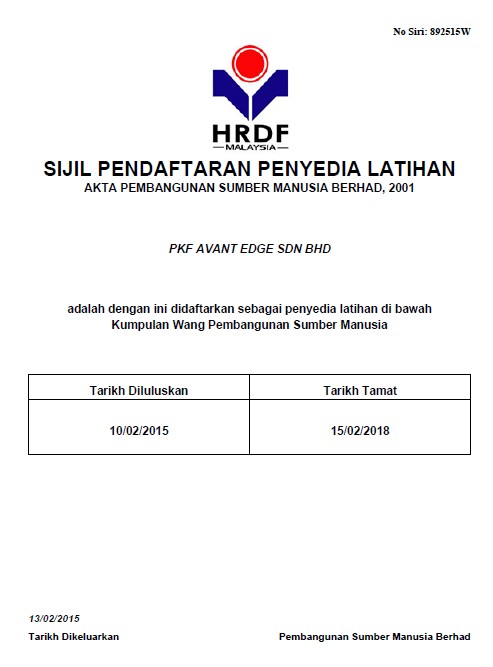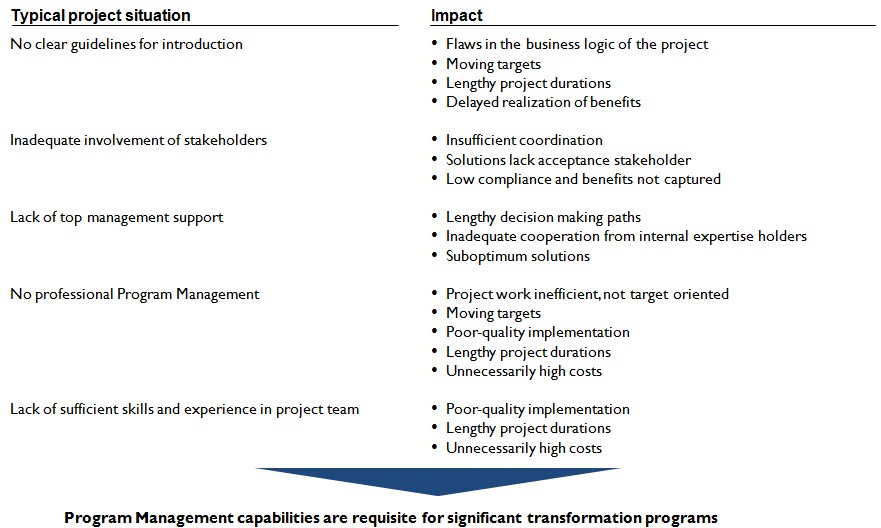
Project management over the years have gone through somewhat of a bad rap for technology projects, especially. They always seem like a luxury afforded by management, and whenever things go south in a tech project, the first stop for blame is always on the project manager. It’s a tough life. On one hand you need to appease the forces that hold the budget (the business) and on the other, you need to deal with a bunch of geeks who are talking binary stuff and whom you know would rather not have you in the room because you don’t talk tech as much as them.
We used to have a Project Management Office, receiving work from other large projects looking for business analysts, project leaders, program managers etc. It’s not cheap upkeeping these guys, what’s with their PRINCE and PMP certifications and their training and hours. The problem was also when the project ended, then basically we had to go look for other projects to take them on. It’s an expensive affair, unless you have a constant pipeline of internal or external projects to keep them busy. The thing was, we noticed project managers tend to stay as project managers. You couldn’t get them to go into tech audits, or develop software or do compliance work. At least, for the ones we hired.
In the past, Project Managers are fairly agnostic in terms of technical capability. They have a set of domains they are good at (whether they are good at telco projects, compliance projects, migration projects), but overall, the discipline more or less remains constant. Methodologies used by these managers include lean, SCRUM, Agile etc, or simply PMI/PMBOK guidelines, which some of our managers tend to gravitate to. But aside from
Due to cost and lack of demand, we shuttered our PMO a few years back, but our guys still practice basic PM work in our compliance project, and in some smaller companies, we actually end up taking the informal role of the project leads. We wouldn’t call ourselves project managers, because not everyone who calls themselves project managers are actually project managers. However, for larger companies, we do defer to the project manager in charge, and in our time we have had some experience with some of the best in the business, and some of the absolute worst. The problem is because being a good PM or absolute garbage is so difficult to assess.
It MAKES A HUGE difference who you put as a project manager. It spells either success or complete doom to your project the moment you assign a good or a garbage project manager.
For
a) Technical Capability
This is more of a trait than a skill.
The GM know they don’t need to be experts, but they also know they need to put their backs and time into understanding the whole thing and trying to absorb the technical matters of it. They would attend training sessions and they would ask very good questions. The hapless managers go: OK, everyone knows their spot here. Consultants, I will look to you to answer all PCI related questions. I am here to gather information for all parties, so I want everyone to come for every meeting we are going to have moving forward
The hapless one basically just comes in, fires off a few questions on project matters, and then sidles down and constantly have a
b) Communication
This seems a given, and a good manager ensures everyone is on the ball and the scoreboard is known to all. They know how to manage downlines (the people that need to get things done),
c) Responsibility
One of the true strengths of character is when things are not going right, the good ones take up the responsibility of the situation and
d) Time Management
The LLB (Look Like Busy) Trait is a big problem with these hapless managers. Because of their lack of a), b) and c) above, they are running around like headless chickens, being pulled from one meeting to another, unable to resolve any issues properly. So their heads are constantly in their phones or laptops instead of properly leading the project. Firefighting, or looking to assign blame. You can also tell when they are not able to manage meeting times. Many times, we have received calls from project managers requesting either immediate meeting at their office, or to come onsite within the next day and they wail because we tell them we are either overseas or assigned to other audits and we can do a phone. Most don’t understand that (unless we are properly paid and engaged), we are not their outsourced compliance unit so they blame us for non commitment. We are their consultants and there is no service level that requires us to stay in the clients office all the time for their beck and call. Unless, again, if they pay us, but most don’t pay for consultants to sit down and wait for inept project managers to scramble around looking for ad-hoc meetings.
Because they are scrambling and blaming instead of working,these PMs now think they are utterly important because they are so busy, but the fact is because of the ineptitude, they are being forced to seek responsibility, communicate or have technical explanation of the project – all which they are unable to do. So it’s one excruciating, meaningless and useless meeting after another. It’s horrible to exist in that manner for a career, but we’ve seen this many times.
Once you solve a), b) and c), Time Management solves itself.
Bonus points: While this may not be always true, the way project managers approach meetings and projects can actually say a lot. If a PMP or PRINCE PM comes in, there is usually a methodology on the table, tools and actual project management software they utilise for reporting. They are able to standardise our reports to a point where it goes straight to the point and to what they know their uplines need to know. Some hapless PM comes in, not certified in anything, not having knowledge of any tools, software or methodology, but basically armed with an excel sheet they took from another project manager who took from another project manager who used it to make sandwiches. That’s how senseless we see some of these methods and tools sometimes an we just look at everyone across the table and everyone goes like: “What is going on?”
In conclusion, never underestimate the importance of Project Managers, especially in a long drawn project like PCI-DSS. While we have known some excellent ones in our time, we have also worked with yahoos out there that single-handedly managed to trainwreck projects. From this article, it may seem our experience is more on the latter, but the opposite is true – we have the privilege to have worked with some really excellent ones that have also helped us get better, over these years. They are absolutely precious resources in a project, trust me. It’s just that when we do face one or two hapless PMs, it stands out a little bit more because we are so used to working with good ones!
Yes, we have shuttered our PMO as an advisory a few years back, but we also recognise the need for great PMs that might be able to help us out in our projects. If there is any interest, drop us a note at avantedge@pkfmalaysia.com and we will get in touch wth you.

